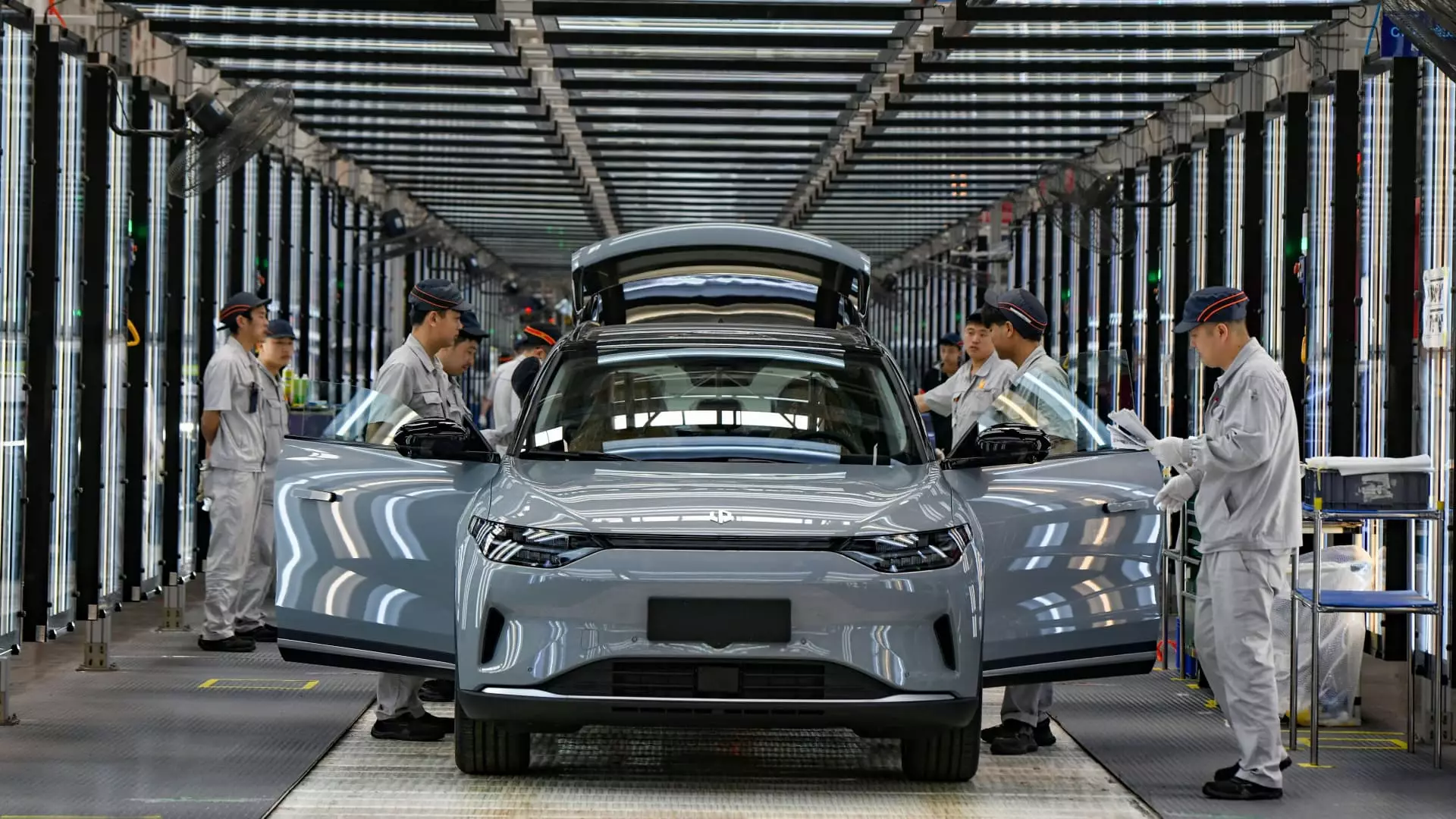The global automotive market faced a significant jolt on Monday following an announcement from U.S. President Donald Trump regarding the introduction of tariffs on imports from Canada, Mexico, and China. As the auto sector is highly interwoven with intricate supply chains and manufacturing dependency, these tariffs have sent shockwaves through the industry, causing a dramatic decline in stock prices for leading automotive manufacturers. With the tariffs set to take effect imminently, the implications for trade relationships, corporate profits, and consumer prices are serious concerns for stakeholders at all levels.
Trump’s decision to impose a 25% tariff on goods from Mexico and most Canadian products, as well as a 10% tax on energy products and Chinese imports, appears to be framed as a response to national security worries, particularly regarding the perceived threats posed by illegal immigration and drug trafficking. This justification, emphasizing urgent societal issues, resonates with parts of the American electorate that are vocally supportive of tougher trade measures. However, critics argue that such tariffs could provoke significant economic backlash, not only impacting trade partner nations but also affecting American consumers and industries reliant on imported materials.
Immediate Market Reactions
The market’s immediate response was a grim spectacle, with shares for prominent auto manufacturers cascading downwards. In pre-market trading, General Motors’ stock dipped approximately 6.6%, while Ford saw a decline of over 4%. European automakers were not sheltered from the fallout either; French parts supplier Valeo and Italian automotive giant Stellantis experienced drops of 7.8% and 6%, respectively. The Asian market also mirrored this distress, with Japanese firms like Toyota and Nissan recording declines of more than 5%. The turmoil illustrates the underlying interdependence of global auto supply chains and raises pressing questions about economic stability as stakeholders brace for further implications.
Canada and Mexico reacted promptly to the announced tariffs, issuing warnings of retaliatory actions aimed at U.S. goods. Such back-and-forth escalations suggest that a trade war looms on the horizon, amplifying fears of prolonged market instability. Analysts point out that the U.S. automotive sector’s reliance on cross-border operations, particularly in Mexico, means any protracted conflict could disrupt production and inflate costs significantly. Additionally, the prospect of broadened tariffs, potentially extending to the European Union, adds another layer of uncertainty, foreboding increased costs of European vehicles within the U.S. market and the subsequent repercussions on European exports.
For the European automotive sector, particularly Germany’s dominant manufacturers like Volkswagen, BMW, and Mercedes-Benz, the timing of these new tariffs could not be worse. Already facing challenges from sluggish demand in critical markets like China, these companies need stable trade relations to maintain their economic footing. Volkswagen’s concerns echoed throughout the industry; they indicated their intent to assess the ramifications of these tariffs while promoting the need for stable market conditions. Giving credence to the fear that tariffs could spiral into protectionism, a BMW spokesperson stressed that hindrances to free trade could stifle growth and innovation in the long run.
As the automotive industry is a vital component of the manufacturing landscape, the potential for a trade conflict could extend far beyond car manufacturers themselves. The ripple effects may affect suppliers, workers, and even consumers who may face heightened prices on not only automobiles but also associated goods. The looming specter of inflation driven by tariffs could threaten the very consumer sentiment that has supported the economic recovery seen in recent years.
As tensions rise between the U.S. and its trading partners in the automotive sector, the fundamental need for dialogue becomes paramount. Stakeholders in the automotive realm must advocate for open markets that foster innovation and growth. Without constructive conversation to de-escalate these brewing conflicts, the threat posed to the global automotive industry spells risks not just for profitability but also for economic stability across borders. The call for cooperation and mutual understanding in trade practices is therefore urgent, as companies await clarity on both the immediate and long-term implications of these new tariffs.

Leave a Reply